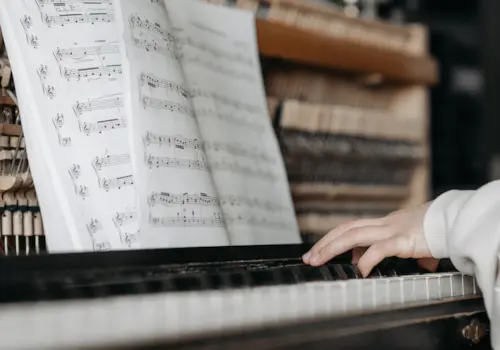23 October 2015
|
<strong>10 FINALISTS, 17 JURY MEMBERS, 2 PIANOS: A lot to take into account, but the results were spot-on at the 17th International Chopin Piano Competition. Read <em>Pianist</em> magazine Editor Erica Worth's review of the Finals </strong> ...
10 FINALISTS, 17 JURY MEMBERS, 2 PIANOS
A lot to take into account, but the results were spot-on at the 17th International Chopin Piano Competition
A lot to take into account, but the results were spot-on at the 17th International Chopin Piano Competition
Music history was in the making in the early hours of Wednesday 22 October, as the first South Korean ever in the history of the Chopin Piano Competition – 21-year old Seong-Jin Cho – took gold medal. The results of the 17-person jury (all eminent pianists or musicologists) were read out in the lobby of Warsaw’s Filharmonia Narodowa, to a heaving crowd.
Reviewing a competition can be tricky, but, having listened to nine E minor Concertos and one F minor, the results were well received by this reviewer. Here follows a brief review of the top three prizewinners’ concerto performances: From start to finish, Seong-Jin Cho gave the most poetic, noble and moving account of the E minor Concerto. There might have been times when a bit more left hand power would have been welcome (possibly the fault of the orchestra – a little loud at times during the first night of the finals), or a bit more daring, but Cho’s opening of the Romance slow movement was so utterly sincere and well-shaped, the pianist bringing out an exquisite tone from the instrument. Cho’s runs were crystal clear, always rounded off beautifully. The Rondo third movement was full of witty exuberance – all in all, fine playing, with the ability to work tightly with conductor Jacek Kaspszyk and the Warsaw Philharmonic. Cho also won the Fryderyk Chopin Society Prize for best performance of a polonaise.
North Americans were in full force this year, with Charles Richard-Hamelin (26, Canada) taking silver medal (the other Canadian, Yike Tony Yang, placed fifth). Richard-Hamelin was the one finalist who opted for the F minor Concerto and even if the first movement came across somewhat urgent, the second was totally convincing – broad and expressive throughout and with a spellbinding return to the main subject. The finale contained an abundance of Slavic feel, even if again hurried in places, most noticeably in the coda – though this was indeed an exciting one. Here is a mature and strong-willed musical character. I’d have liked to hear his B minor Sonata, which he played in the Third round and which won him the Krystian Zimerman Prize for best performance of a sonata (but I did manage to catch up with it later on the Competition’s first-class TV channel).
Kate Liu (21, USA, bronze medal) gave the audience a real treat with a dreamy and lingering account of the E minor Concerto. It seemed her aim was to suspend a moment in time – and she succeeded, what with her deep rich tone, heard to its best in her magical opening of the slow movement. And what phrasing! This pianist is special. My only quibble was that there were moments where it became a bit too static and ‘stretched out’. Liu also won the Polish Radio Prize for best performance of mazurkas.
Both Cho and Liu played Steinway, whilst Richard-Hamelin opted for Yamaha.
The remaining prizewinners were Eric Lu (17, USA, fourth prize), Yike Tony Yang (17, Canada, fifth prize) and Dmitry Shishkin (23, Russia, sixth prize) – all worthy prizewinners – with a particular mention for Lu, who offered up a sensitive and thoughtful account of the E minor Concerto (nerves getting in the way, alas). Honorable mentions went to Aljosa Jurini´c (Croatia), Aimi Koboyashi (Japan), Szymon Nehring (Poland) and Georgijs Osokins (Latvia).
At the press conference directly after, a smiling Cho said, ‘I decided to enter this competition when I was 11. I had listened to it in 2005, and it became my dream to enter. For me, the second and third rounds were really tough… I mean, really! The Finals weren’t so bad at all. I actually had to check on YouTube afterwards how I played, because I couldn’t remember!’
Erica Worth
Information about the 17th International Fryderyk Chopin Piano Competition – including news, video footage, interviews etc. – can be found at chopincompetition2015.com
Content continues after advertisements







